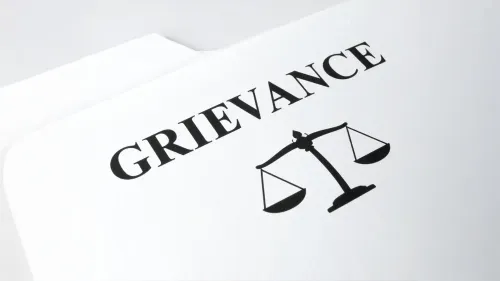Why Was the Former Engineer-in-Chief of Telangana's Irrigation Department Arrested?

Synopsis
Key Takeaways
- C. Muralidhar Rao was arrested by the ACB for disproportionate assets.
- Searches revealed significant cash and property holdings.
- The case is part of a broader investigation into the Kaleshwaram project.
- Rao had a long tenure, serving under the BRS government.
- The ACB's actions reflect a commitment to tackling corruption in public sectors.
Hyderabad, July 15 (NationPress) - The Anti-Corruption Bureau (ACB) of Telangana has apprehended C. Muralidhar Rao, the former Engineer-in-Chief of the Irrigation Department, in connection with a disproportionate assets investigation.
This arrest came after extensive searches at ten different locations across Hyderabad, Karimnagar, and Zaheerabad on Tuesday.
The ACB executed raids not only on Rao’s premises but also on those of his family members and relatives.
Having served for a decade during the reign of Bharat Rashtra Samithi (BRS), Rao was instructed to resign in February 2024 after the Vigilance Department initiated an inquiry into the structural failures of piers at the Medigadda barrage, part of the Kaleshwaram Lift Irrigation Project.
Although Rao retired in 2013 in the then undivided Andhra Pradesh, he received multiple extensions. His arrest is part of a broader investigation into alleged misconduct related to the Kaleshwaram project.
Under the Prevention of Corruption Act, the ACB claims Rao accumulated assets that greatly exceed his legitimate income during his time in office.
Early Tuesday morning, the ACB launched searches at Rao’s residence in Banjara Hills, Hyderabad, leading to his subsequent detention. Raids were also carried out at various sites in Karimnagar and Zaheerabad.
During these operations, the ACB reportedly confiscated cash, gold, property papers, and investment documentation, with Rao allegedly holding illegal assets worth several crores of rupees.
Rao's arrest is a continuation of the ongoing campaign against corruption within the irrigation sector, particularly targeting officials connected to the Kaleshwaram project.
In a related incident in April, the ACB detained Bhookya Hari Ram, a former Engineer-in-Chief involved with the Kaleshwaram project, after discovering assets that were disproportionate to his declared income.
The ACB's actions were based on a report from the National Dam Safety Authority (NDSA), which highlighted significant deficiencies in the project's design, construction, and upkeep.
In fact, Hari Ram was instrumental in the project's construction and management.
Recently, the ACB also apprehended Nune Sridhar, an Irrigation Executive Engineer, for allegedly acquiring massive properties linked to the multi-crore Kaleshwaram project, where he was involved in three project packages.









